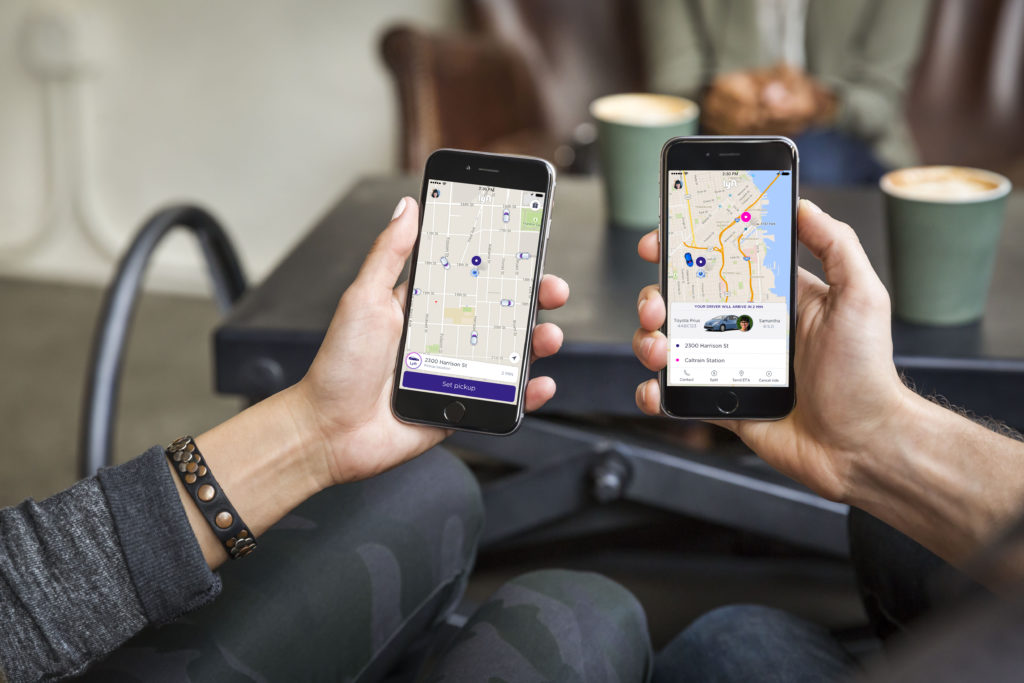Access to transportation remains a challenge for many older Americans, whether that means getting to an important medical appointment, going grocery shopping or meeting a few friends for coffee.
It’s a point several home care providers are actively tackling through ride-hailing partnerships, especially as potential hospital and health system referral sources prioritize social determinants of health — often the root cause of seniors’ chronic illnesses. Comfort Keepers, 24 Hour Home Care and Right at Home, for example, are among the many industry pioneers that have carved out relationships with Lyft Inc. (Nasdaq: LYFT) and Uber Technologies Inc. (NYSE: UBER).
“For me, there are two big components [to offering transportation], with one being the medical piece and allowing people to access health care and appointments in a much easier way — typically at a lower cost than a taxi or other means of transportation,” Ward, 24 Hour Home Care’s regional director of strategy and partnerships, previously told Home Health Care News. “The second piece is geared toward socialization, helping clients get to religious functions or meet up with friends.”
A new study backed by a handful of well-known organizations is now highlighting just how impactful ride-hailing partnerships can be for home care providers — and the seniors they serve.
Published Monday in the Journal of mHealth, the study was led by USC Center for Body Computing researchers, with involvement from AARP Foundation, UnitedHealthcare and Lyft.
The study’s main goal: to test whether cost-free, on-demand rides truly reduce social isolation and improve medical access for seniors.
“Older adults with chronic disease lack access to reliable transportation and turn to time-consuming, costly, or high-burden solutions such as relying on family members or government-subsidized shuttle programs, which are often ineffective and unreliable,” Dr. Leslie Saxon, director of the USC Center for Body Computing and principal investor of the study, told HHCN in an email. “Not only is access to medical centers essential, but it is well known that social isolation and other factors impact overall health.”
In total, about 150 English-speaking adults 60 and older from the Los Angeles area participated in the study, using Lyft to schedule rides through both its mobile app and a special call-in feature.
An AARP grant provided three months’ worth of unlimited rides for participants, who also wore wrist-worn activity trackers to monitor daily activity. Researchers additionally asked participants to complete pre- and post-study surveys to help gauge satisfaction, well-being and other characteristics.
Of the 150 or so older adults who participated in the study, 93% used Lyft, with the vast majority doing so through the mobile app, dispelling popularly held beliefs about seniors’ willingness to adopt certain technologies.
“Participants are willing to adopt novel technology solutions if the benefit is there. This is especially resonant given the subjects were novice app users, previously only using their smartphones for email and web browsing,” Lyft VP of Health Care Megan Callahan told HHCN in an email. “This demonstrates that older populations are willing and capable of adopting new technologies — and Lyft in particular. This is a key finding as Medicare Advantage (MA) plans and [senior care providers] expand their use of Lyft for older adults.”
About 12% of destinations scheduled through Lyft were for medical appointments, with the remainder for errands, entertainment, fitness classes and social visits.
On average, participants scheduled about 70 rides during the study, with the average ride costing about $20.
Difficulty with transportation is linked to as many as 30% of seniors missing doctor appointments, a big factor in U.S. health care economics.
In fact, absenteeism costs the health care industry as much as $150 billion in lost revenue annually, according to previous research from health care technology firm SCI Solutions.
About 90% of study participants reported heightened quality-of-life thanks to increased access to transportation; about two-thirds reported an increase in social visits.
“Access to transportation can be a key factor for people keeping up with medical appointments and social engagements, both of which can be beneficial to overall health as we age,” Steve Warner, UnitedHealthcare’s Medicare Advantage product lead, told HHCN in an email. “That’s one of the reasons we are proud to support this research and also currently offer no-cost transportation options for health care needs through select Medicare Advantage plans.”
Providing transportation services to seniors — specifically those who are MA beneficiaries — will be a driving force in Lyft’s health care business in 2020 and beyond, Callahan reaffirmed.
Lyft currently has MA partnerships with insurers such as Humana Inc. (NYSE: HUNM), Blue Cross Blue Shield and Cigna.
“In addition to partnering with [senior care] providers across the country, as well as technology solutions for older adults like GogoGrandparent, we’re also focused on working with Medicare Advantage plans, including select Blue Cross Blue Shield plans, and Humana MA plans through LogistiCare,” she said. “We actually plan to partner with the majority of MA plans by 2020.”
While the Journal of mHealth study suggests transportation can be a game-changer for seniors’ health and quality of life, others have somewhat dampened expectations.
A 2018 study from Penn Medicine researchers published in JAMA Internal Medicine found that offering a free Lyft ride to Medicaid patients for an upcoming medical appointment did not reduce the rate of missed appointments.
Companies featured in this article:
AARP Foundation, Lyft, UnitedHealthcare, USC Center for Body Computing




